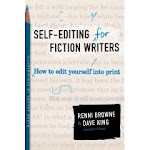Preparing for Your First Writer’s Conference
Conference season has arrived, and so have the nerves. The reservations are made, but your first writer’s conference is still weeks away. Utilize this time to make your first conference experience the most enjoyable, and the most useful.
1) Write two pitches for your project. Whether you’re writing the all-American novel, or a short magazine article, you need an “elevator” pitch and a longer one, usually called a “back cover blurb.” Condense your project into 25- and 50-word pitches. It’s not an easy task; take your time to get it right.
2) Practice giving the pitches. If you have critique partners, practice on each other. If not, practice with your spouse, your kids, your dog. Get so comfortable giving your pitch that it becomes a natural response when an editor asks, “What are you working on?”
3) Create a “one-sheet” to use as handouts to editors and publishers. If you have access to Microsoft Publisher, or any other type of graphic arts program, you can create a crisp layout conveying your ideas. You’ll find a One-Sheet handout on the http://www.writeintegrity.com/ Web site.
4) Order business cards. Several companies offer affordable options for cards so you won’t have to break the bank. Ordering two sets of cards provides a safety measure - you can give out the cards with your complete information to editors and business contacts who need all that information; distribute the more generic cards, with your email address and website, but no other personal information, to strangers who ask about your work.
5) Research the publishers and editors who’ll be attending the conference. Most conferences provide a list of professionals giving workshops, keynotes, appointments, and critiques so make use of the information. The conference may also provide a “most wanted” list from each participant, so you’ll know in advance who’s looking for your type of manuscript. Visit websites to learn about their current authors and projects, what types of projects they may be seeking and to get a general feel for the company.
6) Keep writing. A daily writing schedule - working on the project you’re pitching or a new one - will keep you focused.
7) Prepare your wardrobe. Check the conference information to determine how formal or how casual the event will be, and then make sure your wardrobe matches. You want to appear professional and together; others will get their first impression of you from your wardrobe so you don’t want to over- or under-dress. Some conferences host an awards banquet; find out if it’s a formal occasion before you arrive.
8) Keep your expectations in check. You’ll probably have time with agents, editors, and publishers and some may even be interested in your work. But if they aren’t interested, this isn’t the end of your career. Attend workshops and seminars, take notes, and seek advice. Learn as much as you can about the craft of writing, and know that the education never ends.
9) Stock up on thank-you cards. Immediately after the conference, you’ll want to send notes to all who helped you, advised you, offered critiques or assistance.
10) Most of all - enjoy the experience. Know this is a time to learn, listen, study, but it’s also a time to make new friends and contacts for the future.
1) Write two pitches for your project. Whether you’re writing the all-American novel, or a short magazine article, you need an “elevator” pitch and a longer one, usually called a “back cover blurb.” Condense your project into 25- and 50-word pitches. It’s not an easy task; take your time to get it right.
2) Practice giving the pitches. If you have critique partners, practice on each other. If not, practice with your spouse, your kids, your dog. Get so comfortable giving your pitch that it becomes a natural response when an editor asks, “What are you working on?”
3) Create a “one-sheet” to use as handouts to editors and publishers. If you have access to Microsoft Publisher, or any other type of graphic arts program, you can create a crisp layout conveying your ideas. You’ll find a One-Sheet handout on the http://www.writeintegrity.com/ Web site.
4) Order business cards. Several companies offer affordable options for cards so you won’t have to break the bank. Ordering two sets of cards provides a safety measure - you can give out the cards with your complete information to editors and business contacts who need all that information; distribute the more generic cards, with your email address and website, but no other personal information, to strangers who ask about your work.
5) Research the publishers and editors who’ll be attending the conference. Most conferences provide a list of professionals giving workshops, keynotes, appointments, and critiques so make use of the information. The conference may also provide a “most wanted” list from each participant, so you’ll know in advance who’s looking for your type of manuscript. Visit websites to learn about their current authors and projects, what types of projects they may be seeking and to get a general feel for the company.
6) Keep writing. A daily writing schedule - working on the project you’re pitching or a new one - will keep you focused.
7) Prepare your wardrobe. Check the conference information to determine how formal or how casual the event will be, and then make sure your wardrobe matches. You want to appear professional and together; others will get their first impression of you from your wardrobe so you don’t want to over- or under-dress. Some conferences host an awards banquet; find out if it’s a formal occasion before you arrive.
8) Keep your expectations in check. You’ll probably have time with agents, editors, and publishers and some may even be interested in your work. But if they aren’t interested, this isn’t the end of your career. Attend workshops and seminars, take notes, and seek advice. Learn as much as you can about the craft of writing, and know that the education never ends.
9) Stock up on thank-you cards. Immediately after the conference, you’ll want to send notes to all who helped you, advised you, offered critiques or assistance.
10) Most of all - enjoy the experience. Know this is a time to learn, listen, study, but it’s also a time to make new friends and contacts for the future.













Thanks for the info. I only go to one writer's conference each year and it is a local one. But I always look forward to attending it.
ReplyDelete